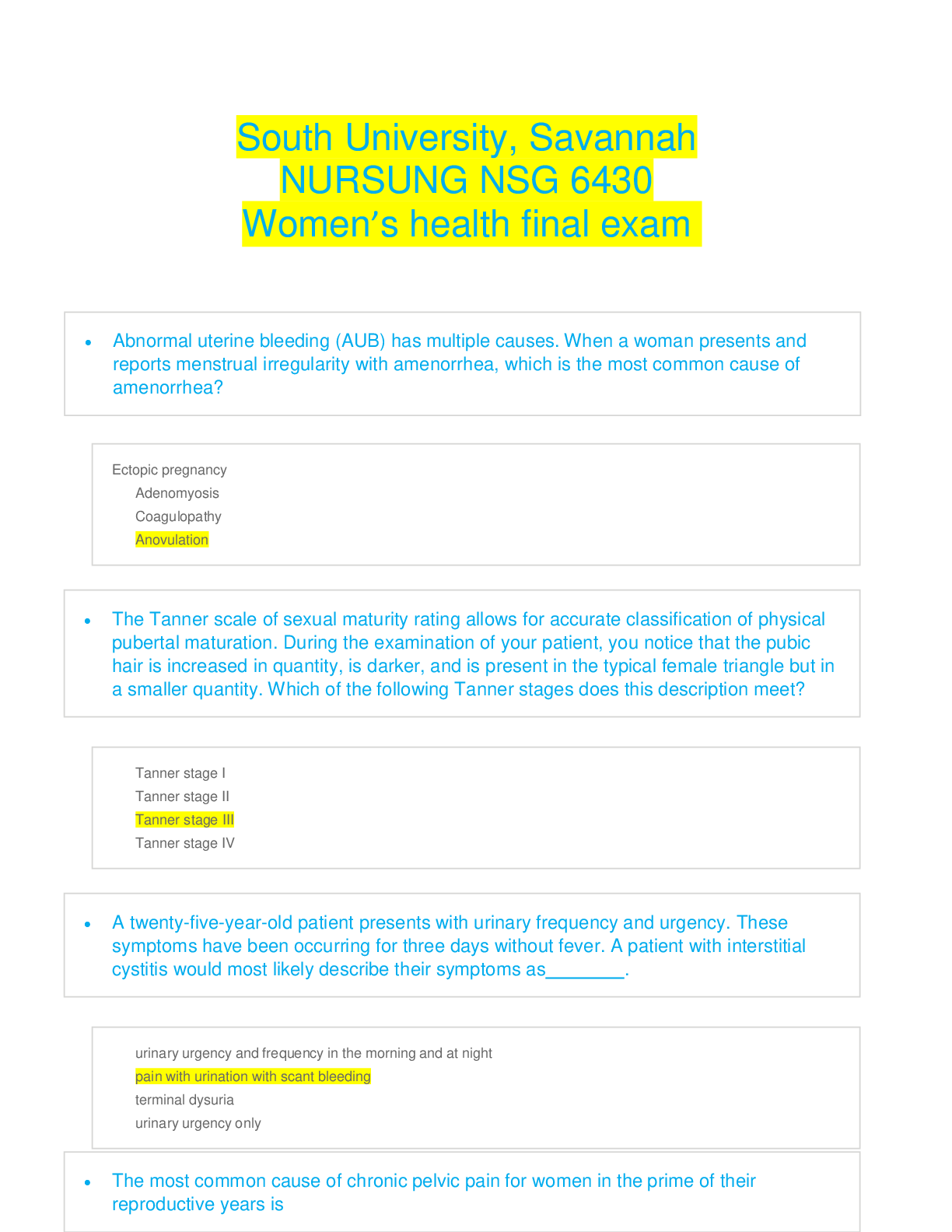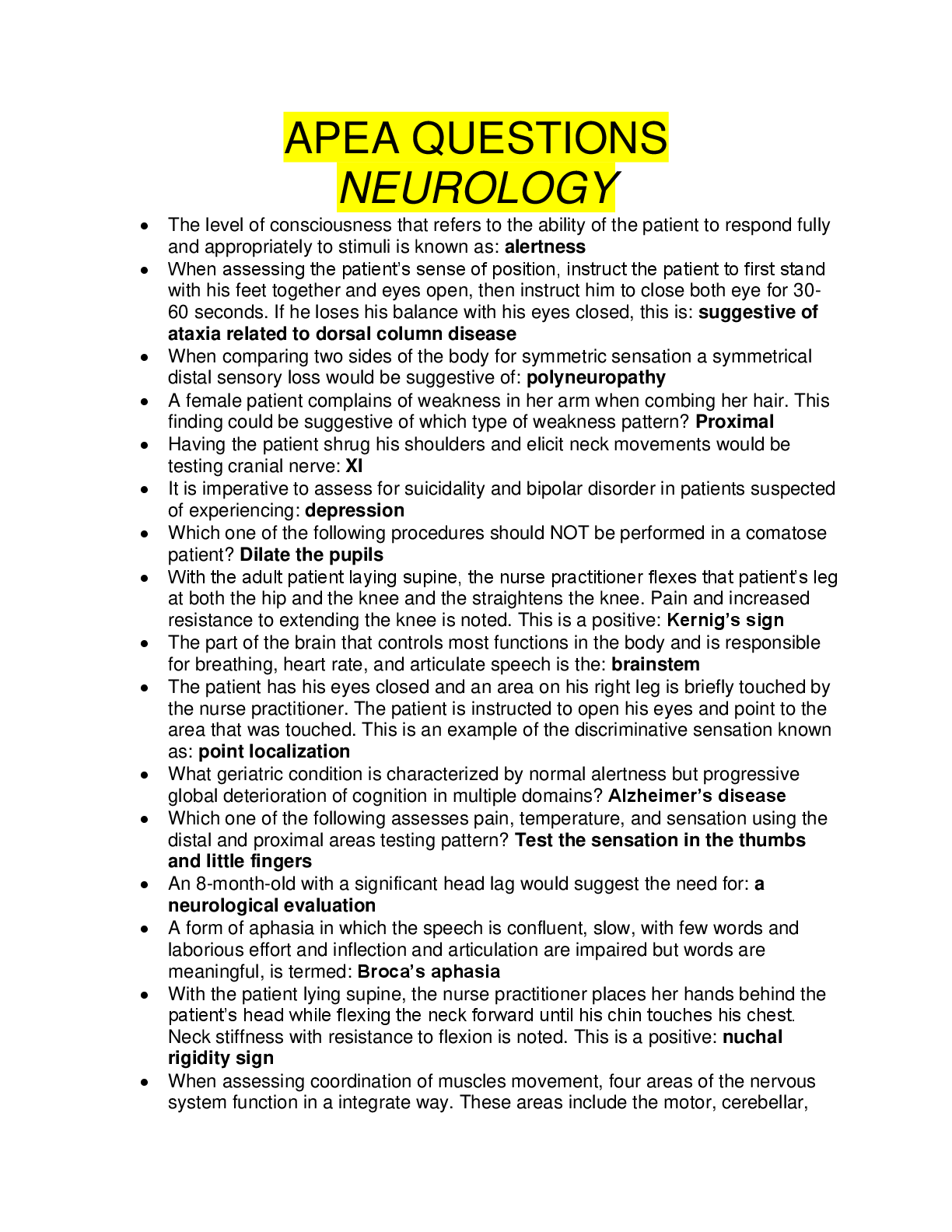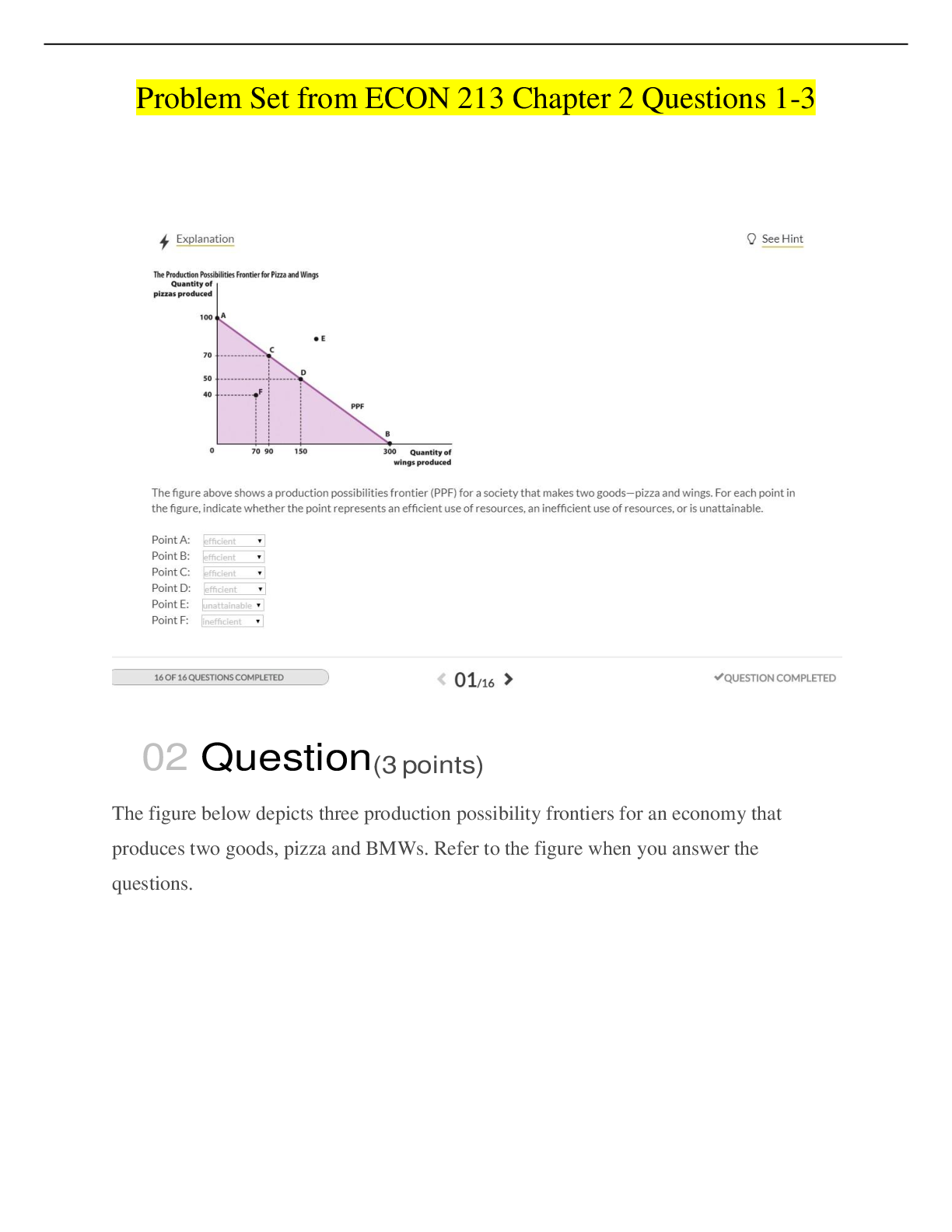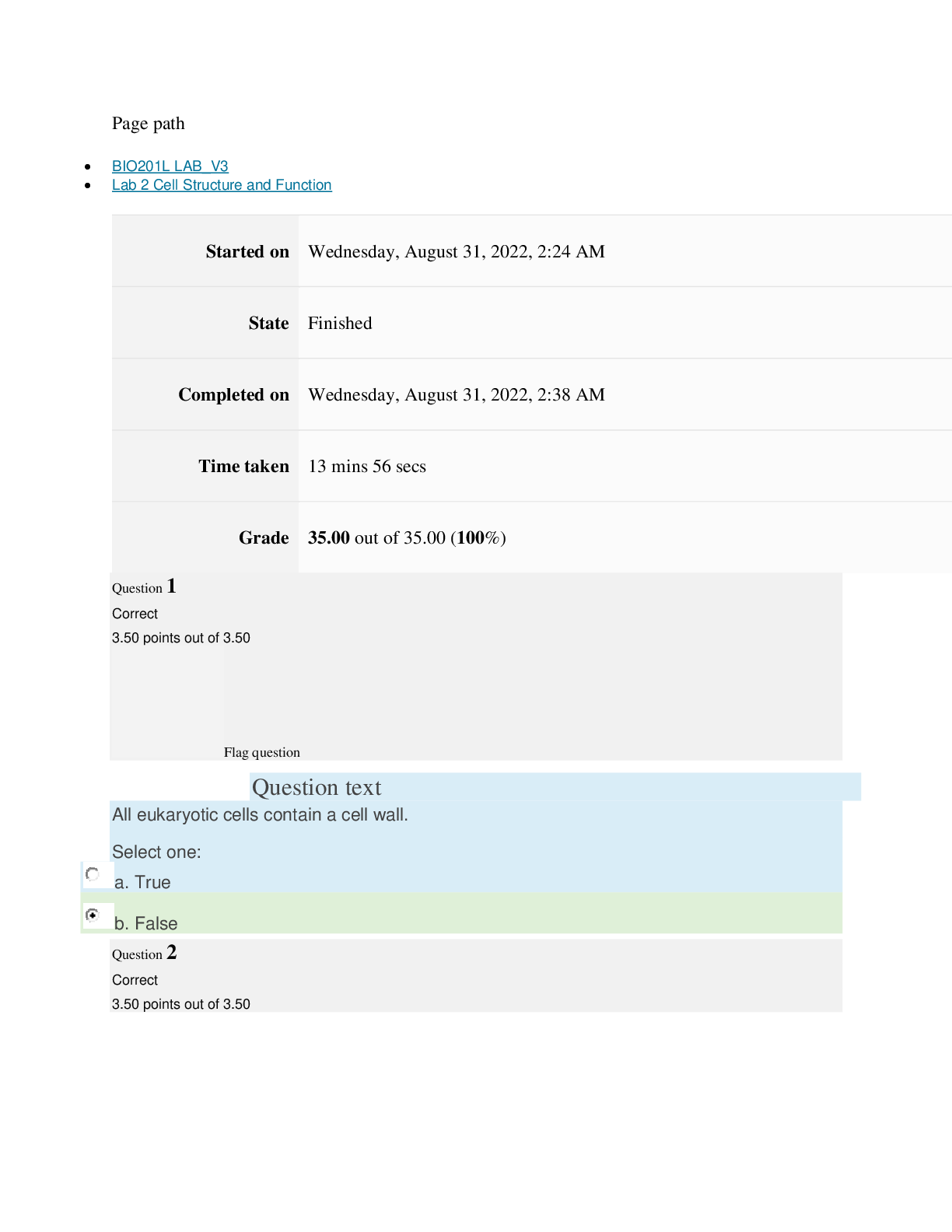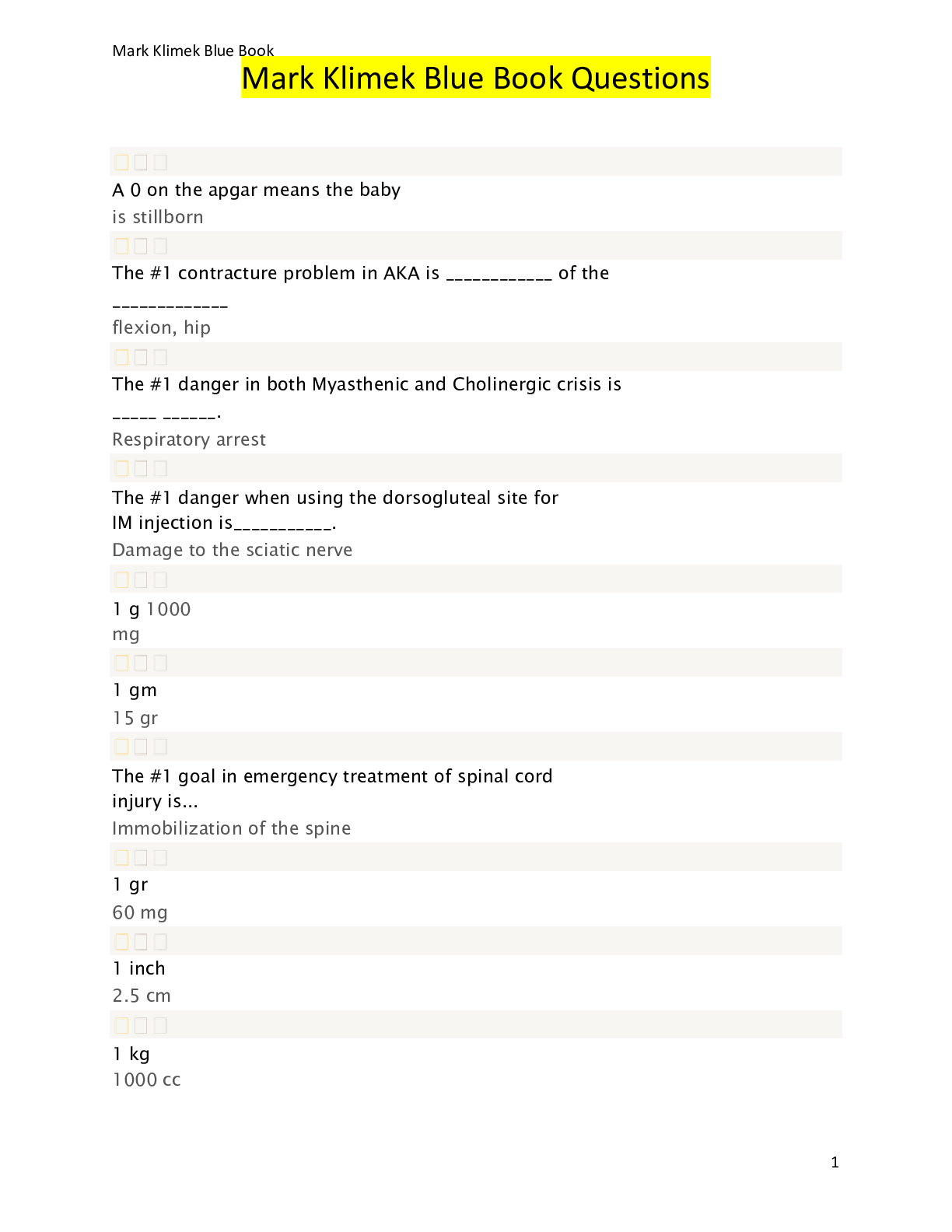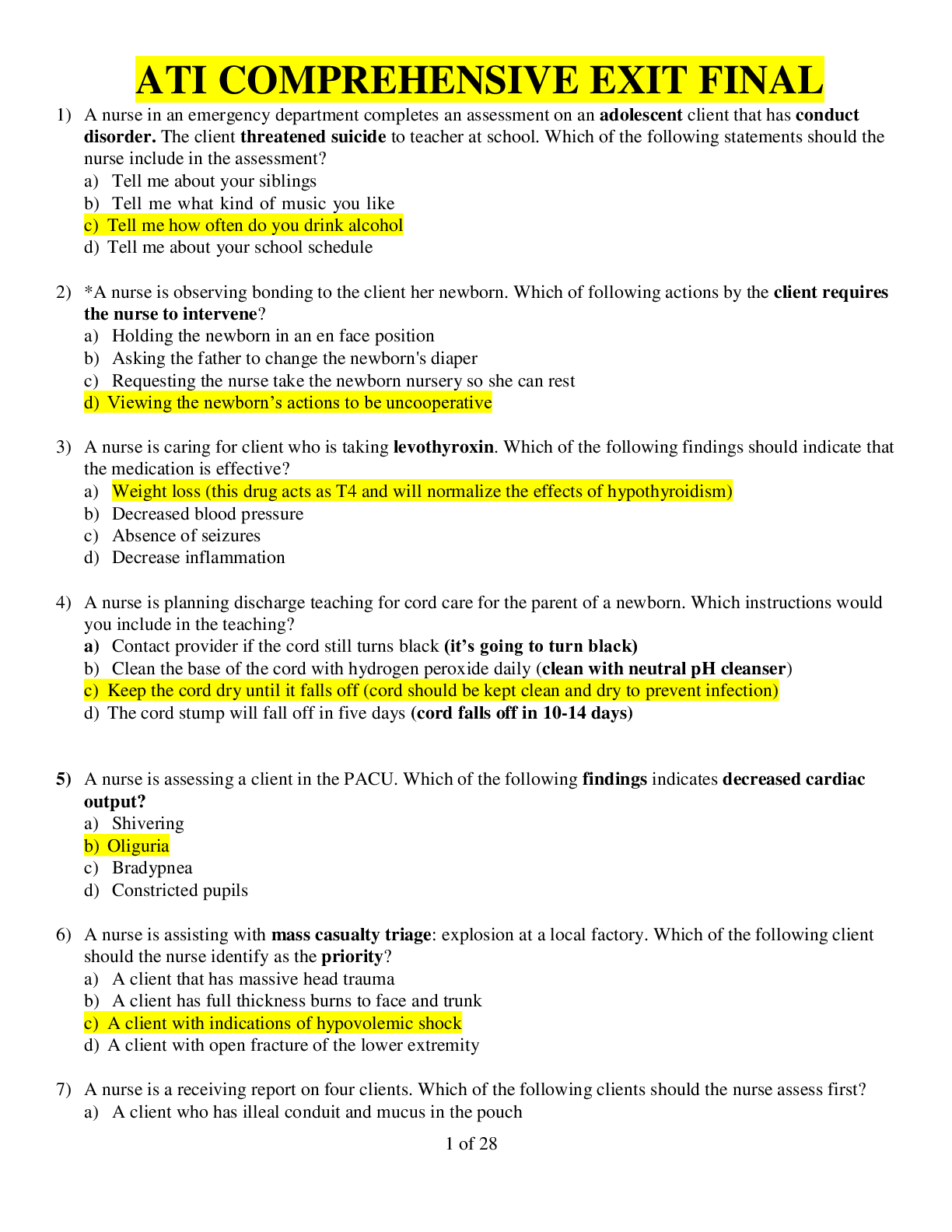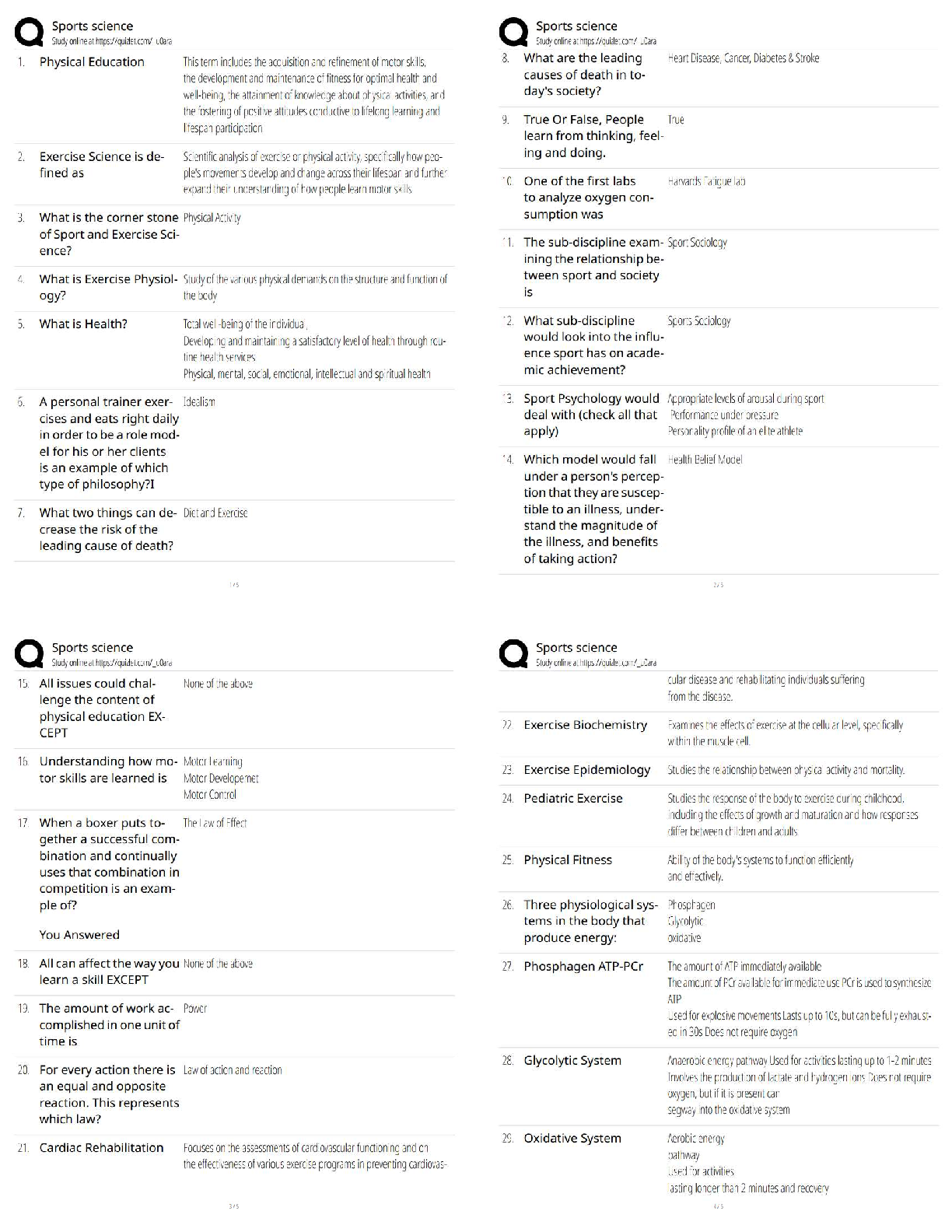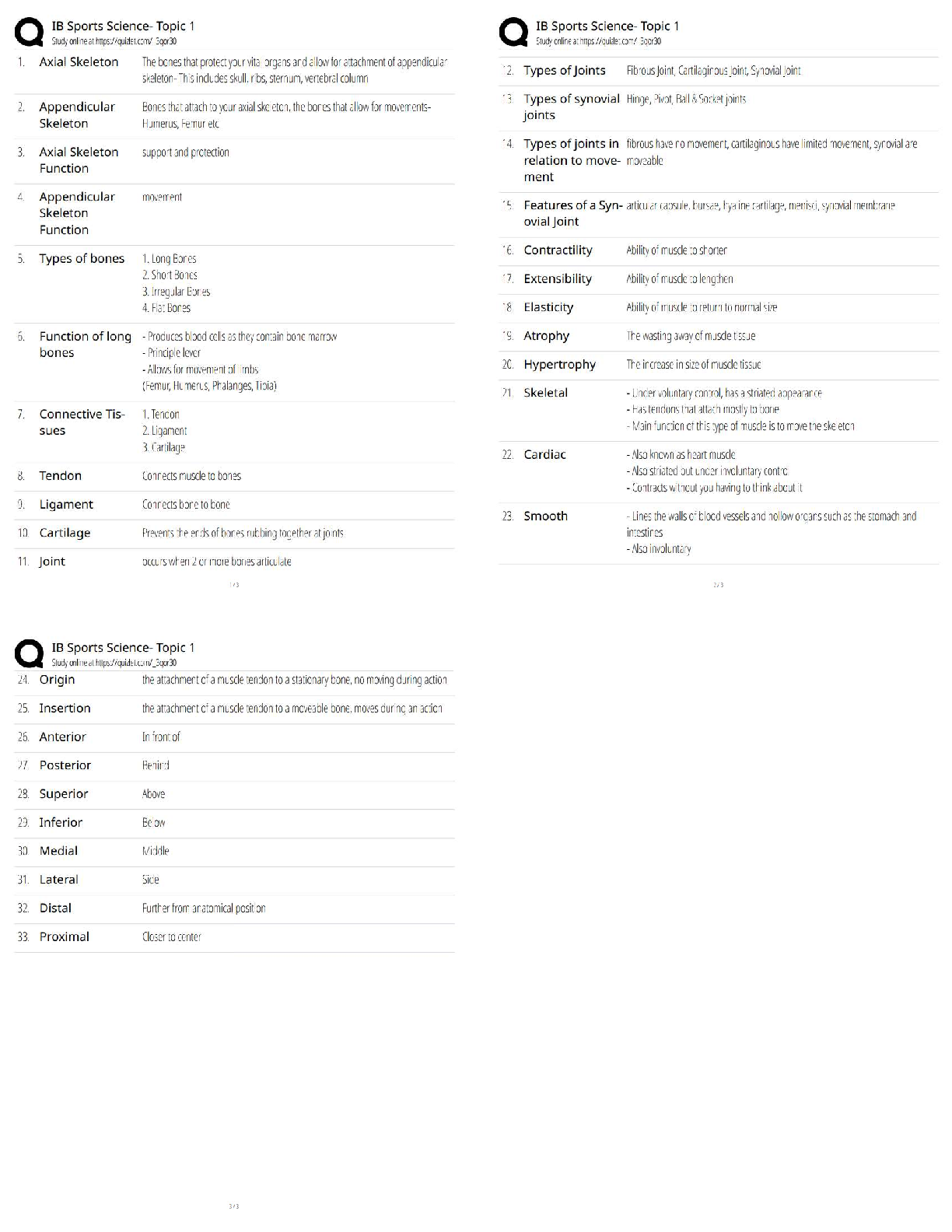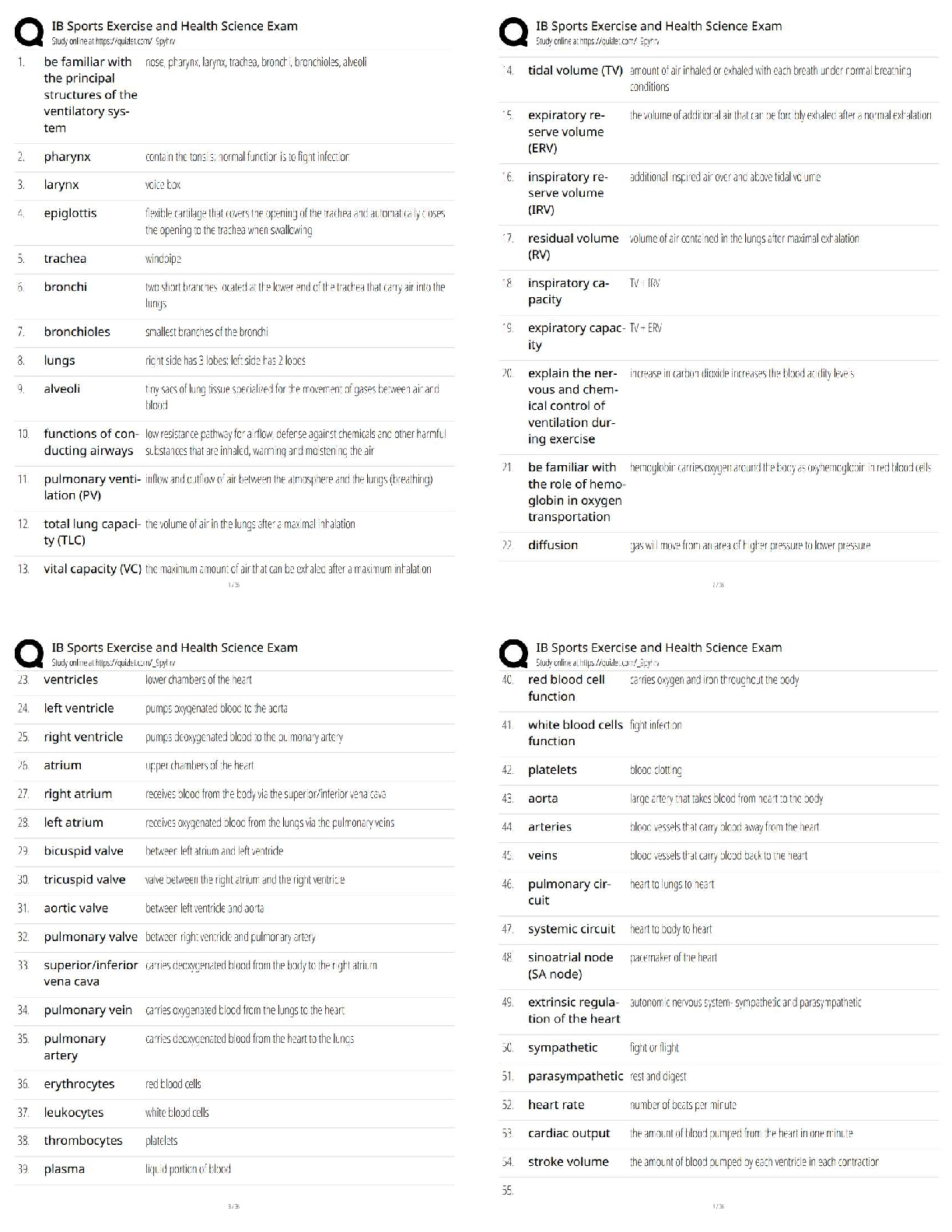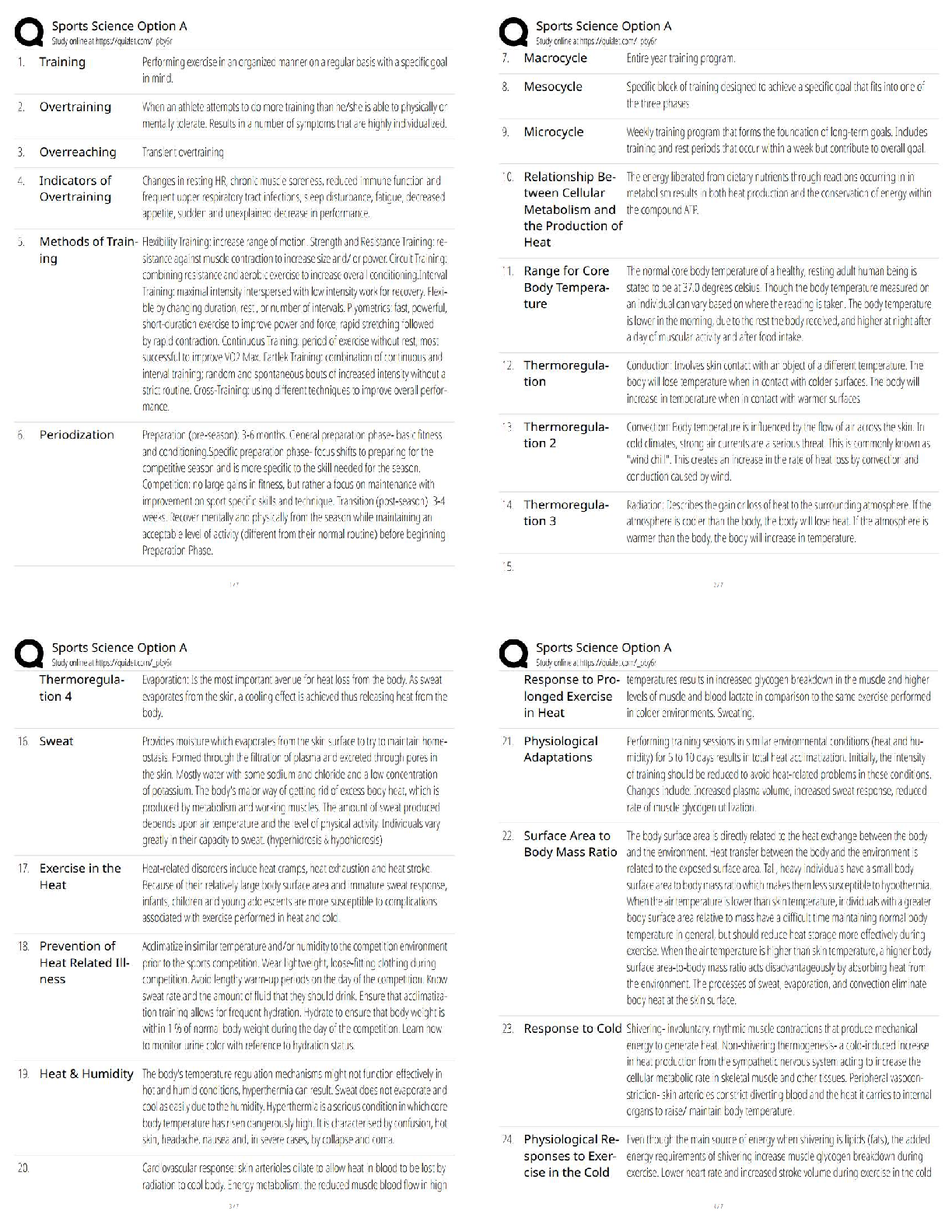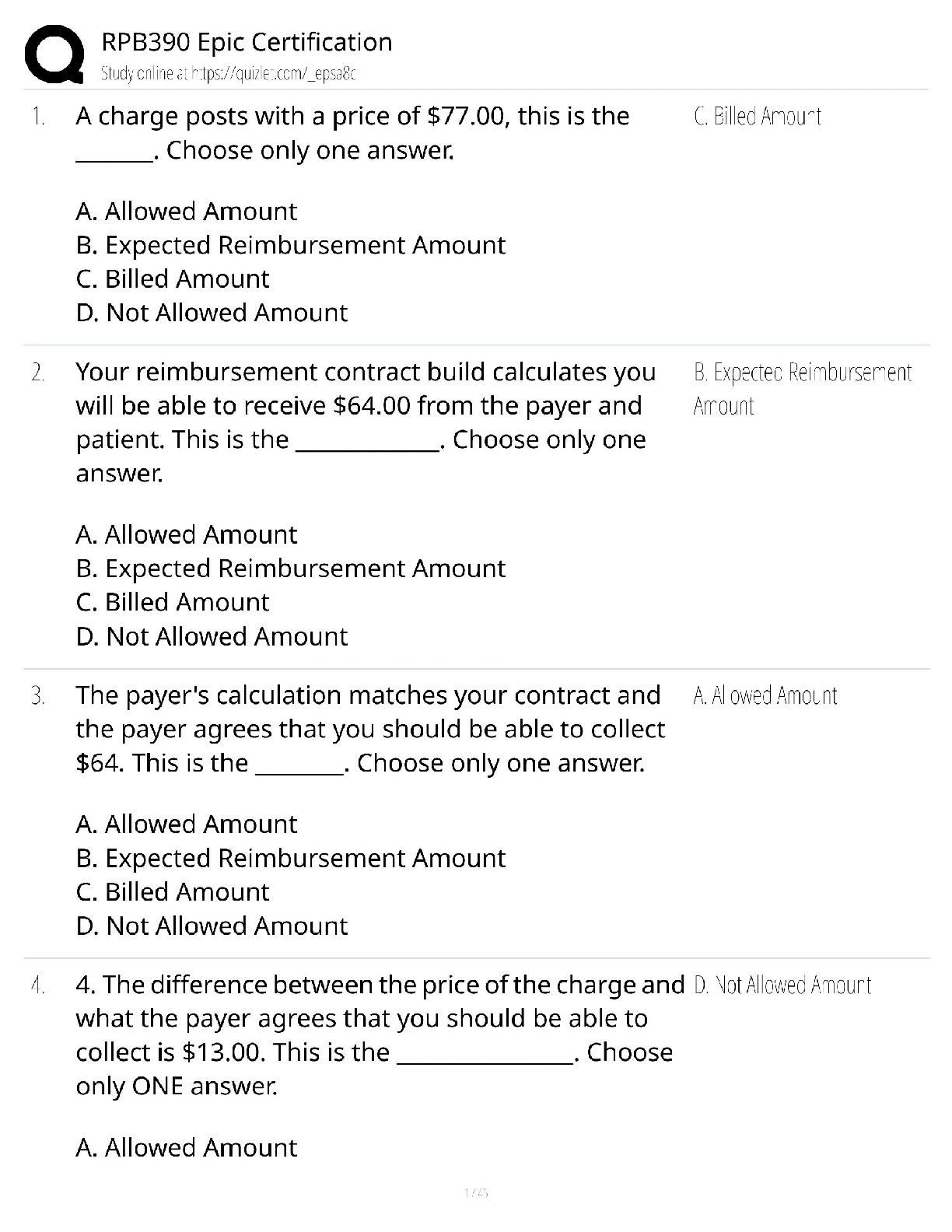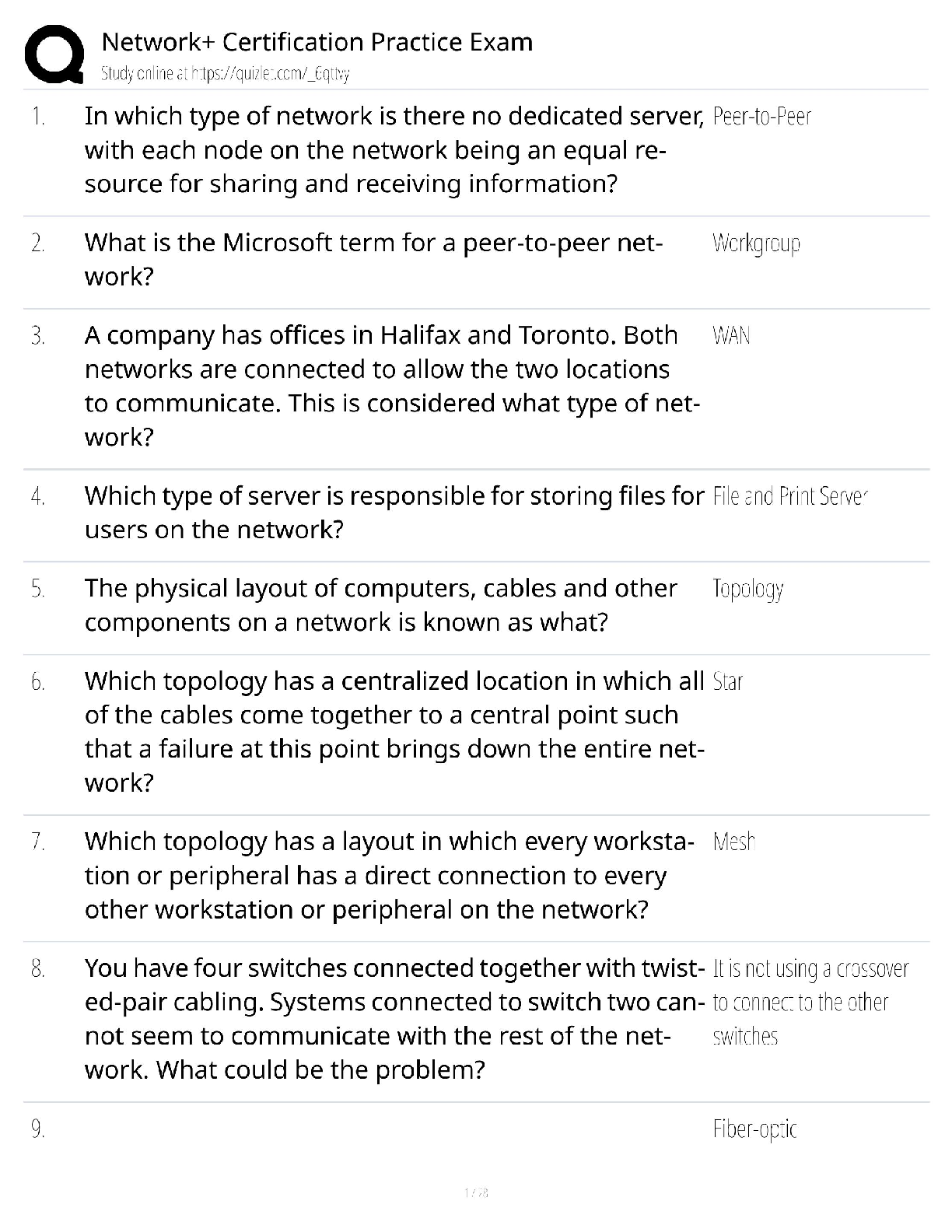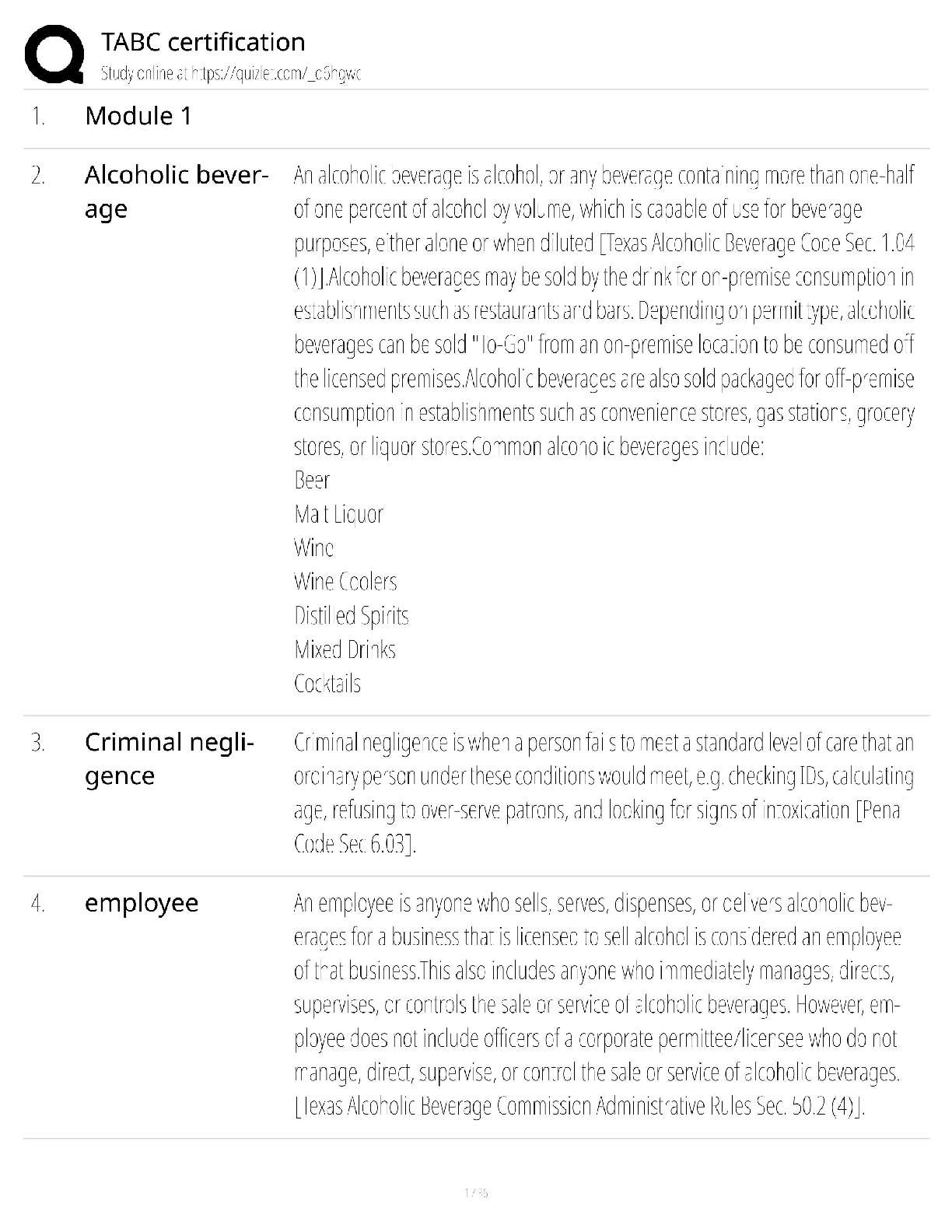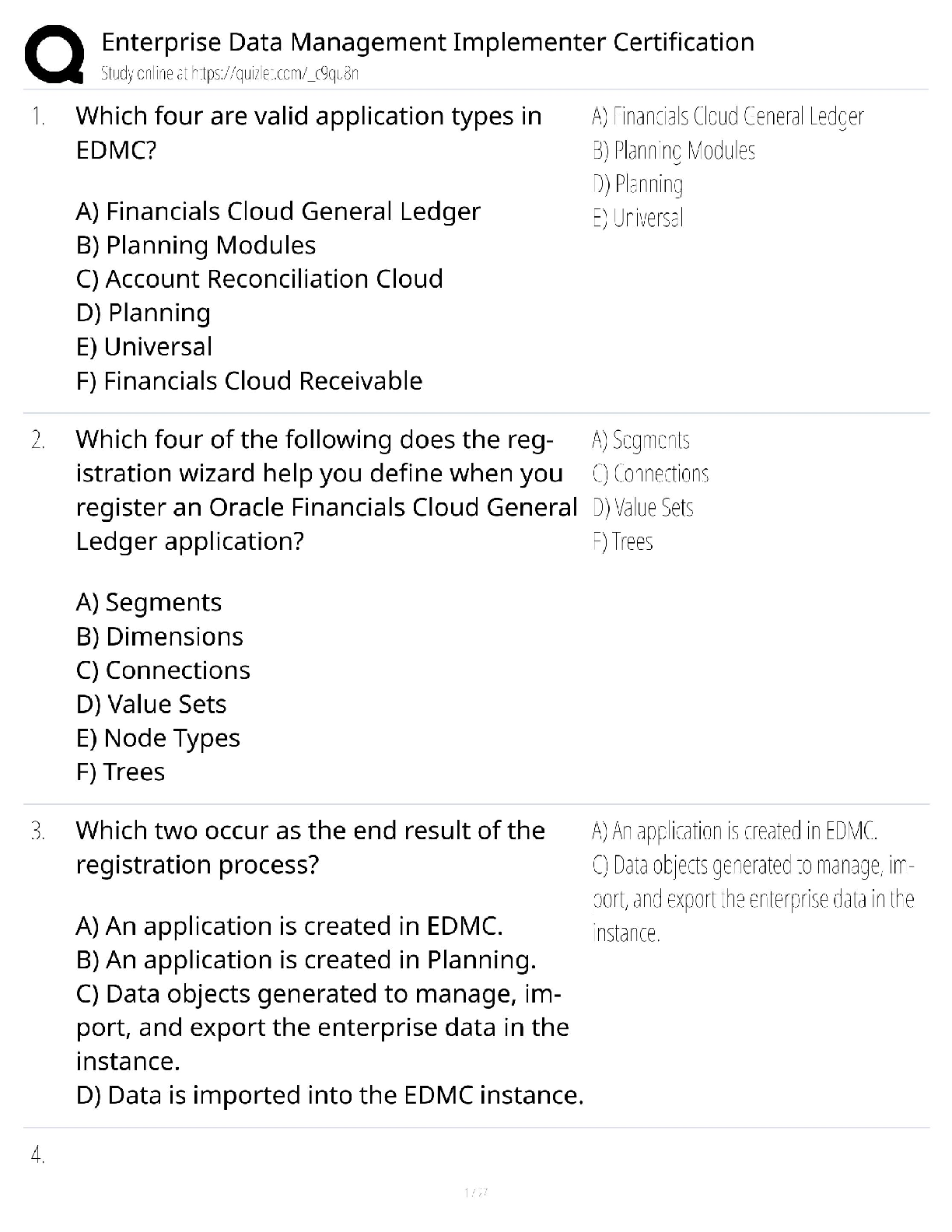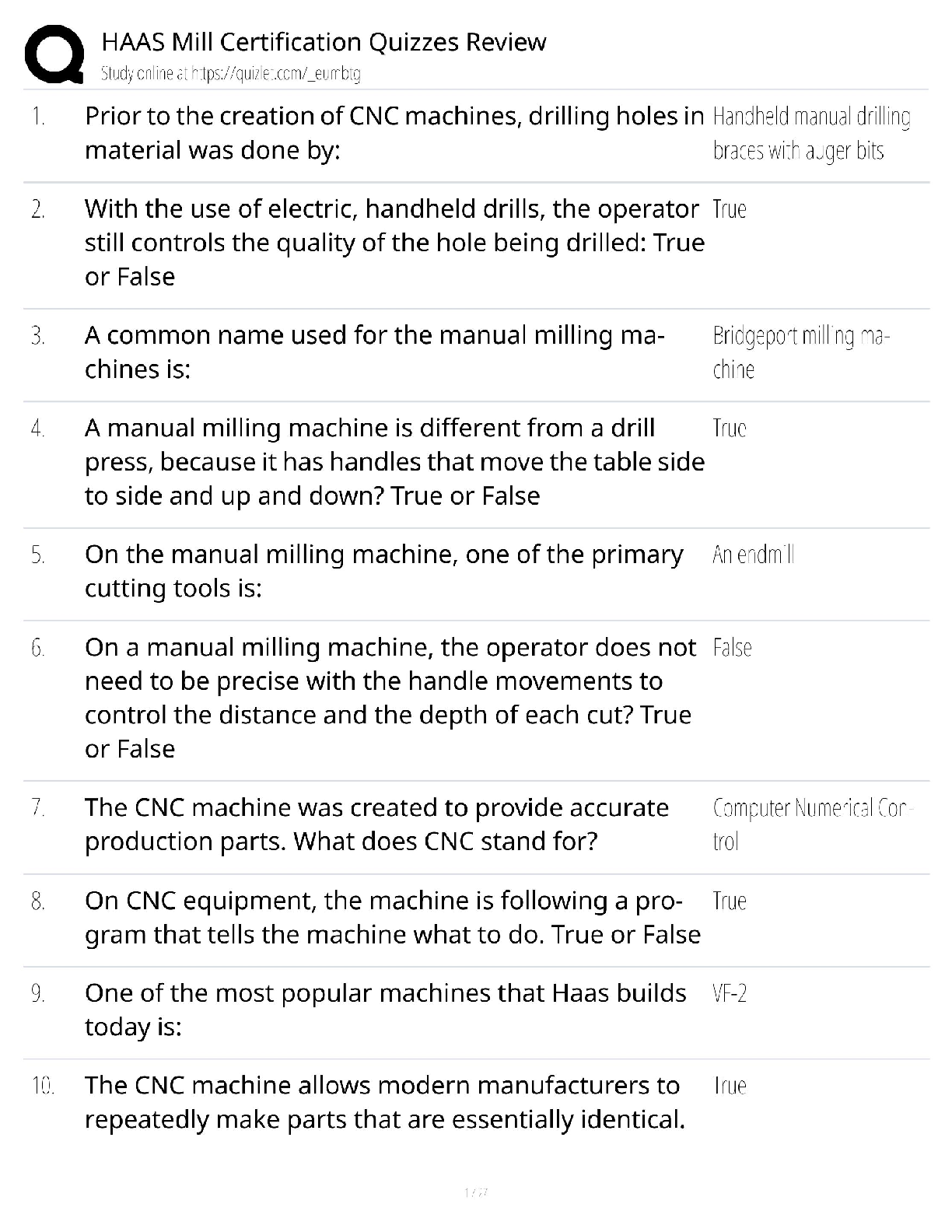*NURSING > QUESTIONS & ANSWERS > NURS 2407 NCLEX-RN Psychosocial Integrity | Practice Questions and Answers with rationale | RASMUSSE (All)
NURS 2407 NCLEX-RN Psychosocial Integrity | Practice Questions and Answers with rationale | RASMUSSEN COLLEGE
Document Content and Description Below
NCLEX-RN: Psychosocial Integrity Practice Questions 1. Which couple is at greatest risk for domestic violence? A. A couple which consists of a husband and wife both of whom are affected wi ... th Alzheimer’s disease B. A poverty stricken couple without any healthcare resources in the community C. A pregnant woman and a husband who was physically abused as a young child D. A wealthy couple with feelings that they are immune from punishment and above the law 2. You are caring for a client who has been assessed as having a past history of violent and dangerous behaviors towards others. You, as the nurse, are concerned about this client’s past history and the dangers that may adversely affect others including staff , visitors and other clients on the unit. What is the first thing that you should do to prevent violence towards others? A. Restrain the client B. Place the client in seclusion C. Get an order for a sedating medication D. Establish trust with the client. 3. You are caring for a client who has been taking illicit amphetamines and states that they continue to use this illicit drug because they “su er and feel lousy” when they try to stop taking it. Which nursing diagnosis is the most appropriate for this client? A. Psychological dependence secondary to amphetamine use B. Substance abuse secondary to amphetamine use C. Addiction secondary to amphetamine use D. Physical dependence secondary to amphetamine use 4. You are the supervising nurse in a physical rehabilitation center that has the philosophy that clients have the need to cope with their disabilities and its limitations are the result of a discrepancy between the client’s abilities and the limitations of the physical and social environment within which the client lives. Which model of disability is this philosophy based on? A. Orem’s Self Care Model B. Nagi's Model C. A cognitive model of disability D. A biomedical model of disability 5. Place the following phases of crisis in the correct sequential order. Order each response with a number from rst to last, with #1 as the rst phase of crisis to #4 which is the fourth phase of crisis. 1. The signs and symptoms of the General Adaptation Syndrome 2. Detachment and disorientation 3. Trying alternative methods of coping 4. The use of psychological ego defense mechanisms A. 3,2,1,4 B. 1,2,3,4 C. 4,3,2,1 D. 4,3,1,2 6. Your client in crisis is detaching from self. Which psychological ego defense mechanism is this client most likely using? A. Displacement B. Sublimation C. Dissociation D. Reaction formation 7. You are the Assistant Director of Nursing in a multiethnical and culturally diverse inner city acute care facility. You will be chairing a committee to develop a philosophy of nursing that addresses these facility characteristics and the characteristics of the clients. Which theoretical framework would you recommend that this committee should consider when addressing mutiethnicity and the culturally diverse nature of this facility for this philosophy? A. Jean Watson's B. Martha Rogers' SHARES C. Nagi's theory D. Madeleine Leininger’s theory 8. You are working as a National Board for Certi cation of Hospice and Palliative Nurses certi ed hospice and palliative care nurse who is caring for your clients in their home. Which of the following nursing diagnoses or client goal would be the most likely appropriate and expected for the vast majority of these clients? A. The client will accept impending death B. Guilt related to past transgressions C. Spiritual distress related to guilt D. Pain related to end of life symptoms 9. You are caring for a hospice client who is at the end of life. Based on this client’s signs and symptoms, the client is comatose, dehydrated, free of pain, constipated, without distress and expected to die in a day or two. Which of the following is an appropriate client outcome or an appropriate intervention for this client? A. The client will be free of constipation B. The client will remain free of pain and distress C. The administration of an antiemetic to prevent vomiting and further dehydration D. The administration of an enema to correct the constipation 10. Based on the fact that you family unit client is experiencing a situational crisis that has led to dysfunctional communication within the family unit, you have recommended that the entire nuclear family and members of the extended family who live in the family’s home begin family therapy. The grandparents tell you that it is their grandson, rather than their son, who is addicted to prescription pain killers, is the cause of the problem; therefore, they do not have to participate in this group therapy. How should you respond to these grandparents? A. “You should try to come to a few sessions at least because they may be very informative to you”. B. “You are probably correct. This really is not your problem”. C. “Despite the fact that it is your grandson’s drug addiction, situations such as this a ect all members of the family including grandparents who live in the home.” D. "You should attend because the doctor has ordered family therapy for you as extended family members”. SHARES 11. You are a hospice nurse who, as part of your role, does follow up counseling and care for the signi cant others of deceased spouses for one year after their loss. Whose theory of grief and loss would you most likely integrate into your practice as you perform this role? A. Engel's theory B. Kubler Ross' theory C. Lewin's theory D. Warden's theory 12. As the nurse in a primary care clinic, which cultural concern would you integrate into your psychological assessments of your clients? A. The concern related to the client’s cultural reluctance to report psychological symptoms because of some possible culturally based stigma associated with psychiatric mental health disorders B. Concerns revolving around the lack of nancial and health insurance resources to pay for psychological care C. Concerns related to the compliance with psychological treatment regimens because of the client’s lack of social support systems D. The concern related to the culturally based client apathy about nursing care and nursing assessments SHARES 13. You are caring for a group of clients who are adversely a ected with phobias. Which form of group therapy will you most likely employ to treat these clients? A. Cognitive psychotherapy B. Behavioral psychotherapy C. Cognitive behavioral psychotherapy D. Psychoanalysis 14. Select the client religion that is the most pertinent to the role of the admissions coordinator of hospital who assigns the rooms and beds of clients who will be admitted. A. Hinduism B. Buddhism C. Islam D. Mormonism Correct SHARES 15. You are caring for an acute care adult client in the medical unit who has no history of a psychiatric mental health disorder. This 76 year old client has suddenly and abruptly started to exhibit episodic and intermittent periods of time vacillating between periods of impaired cognition and periods of mental clarity. The client reports to you that they are seeing clowns in their room. This client is dehydrated and has just begun taking an anticholinergic medication. Which of the following is the most appropriate nursing diagnosis for this client? A. Psychotic symptoms related to sensory overload B. Psychotic symptoms related to a previously undiagnosed psychosis C. Visual disturbances related to dementia D. Visual disturbances related to delirium 16. You have been conducting a weekly outpatient stress management educational series for clients in the community who are hypertensive. The best way to evaluate the e ectiveness of this educational series is to: A. Collect baseline blood pressure readings prior to the beginning of this educational series and then collect and compare blood pressure data during the series and after the series is completed. B. Collect baseline blood pressure readings prior to the beginning of this educational series and then collect and compare blood pressure data after the series is completed. C. Ask the clients how often they use the stress management techniques that they have learned during this educational series. D. Use a questionnaire at the end of the series that asks the participants how they liked the class and what they learned during this educational series. 17. Which of these stress management techniques employs deep focused breathing, movement and meditation? A. Reiki B. Tai Chi C. Feng Shui D. Jiu Jitsu 18. You are a home health nurse caring for an elderly client in their home. They have children and grandchildren but they live far from the couple and they typically visit with your clients once to two times a year. The elderly man is beginning to show some of the signs of Alzheimer’s disease dementia. The wife is also 88 years of age and has had a stroke which has left her with left sided weakness, but she is willing to help her husband and to maintain his safety. What kind of support should you give the wifeSHARESinterms of her role caring for her husband? A. You should advise the couple to move closer to their children so that they can care for their father. B. You should teach the wife about this progressive disease and the need to promote as much independence as possible. C. You should teach the wife about this progressive disease and the need to do all that she can for the husband to avoid his depression and frustration. D. You should advise the couple to decrease their social activities in order to preserve the husband’s dignity and self-esteem. 19. You are running a caregiver support group for those who are caring for a person with impaired cognition related to Alzheimer’s disease. You are planning a session on the stages of Alzheimer’s disease, its progression and some useful helpful tips for these participating care givers. Which of the following elements should you include in this session? A. According to the Global Deterioration Scale, clients in the rst stage of Alzheimer’s disease tend to cover up their failing abilities B. According to the Reisberg Scale, clients in the rst stage of Alzheimer’s disease tend to cover up their failing abilities C. According to the Global Deterioration Scale, clients in the third stage of Alzheimer’s disease tend to cover up their failing abilities D. According to the Reisberg Scale, clients in the fourth stage of Alzheimer’s disease tend to cover up their failing abilities 20. Which of these is a form of therapeutic communication? A. Probing for more information from the client B. Sublimation to determine hidden messages C. Providing privacy so the client is comfortable D. Silence to allow contemplation and thought 21. A therapeutic milieu is: A. A safe environment of care that is conducive to the prevention of medical errors. SHARES B. A client care area that provides personal privacy and the conGdentiality of medical information. C. A European method of design and color to promote health and wellness. D. The provision of a therapeutic environment of consistency to promote health. [Show More]
Last updated: 1 year ago
Preview 4 out of 17 pages

Loading document previews ...
Buy this document to get the full access instantly
Instant Download Access after purchase
Buy NowInstant download
We Accept:

Reviews( 0 )
$10.00
Can't find what you want? Try our AI powered Search
Document information
Connected school, study & course
About the document
Uploaded On
Apr 12, 2020
Number of pages
17
Written in
All
Additional information
This document has been written for:
Uploaded
Apr 12, 2020
Downloads
0
Views
317

